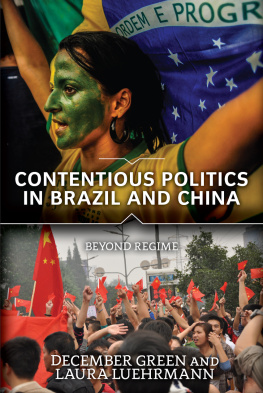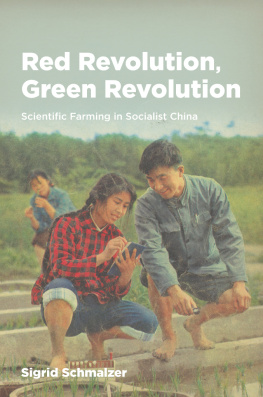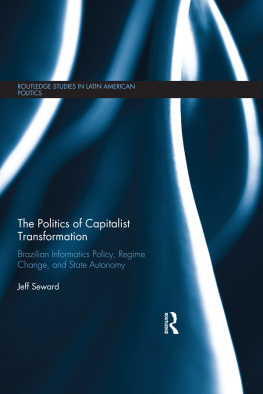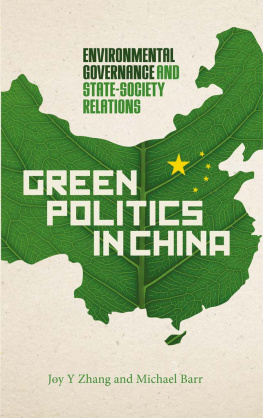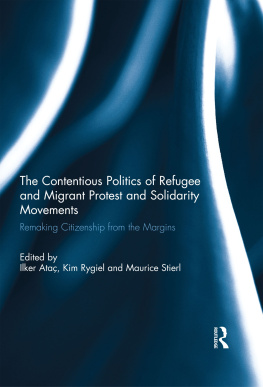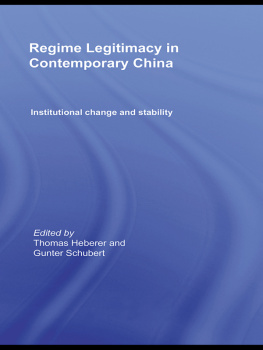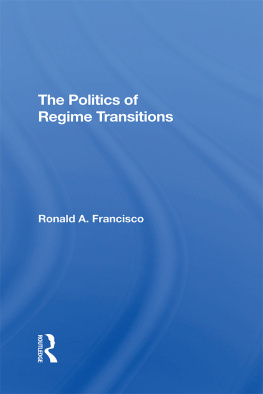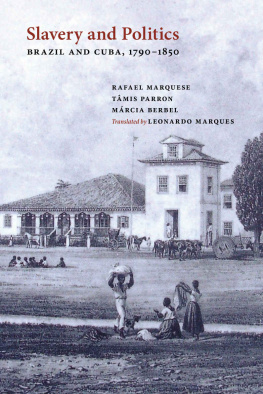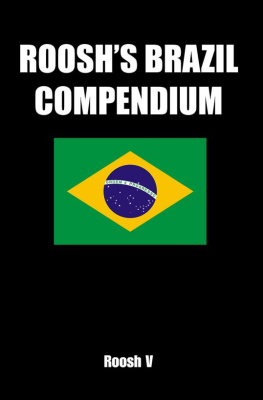First published 2016 by Westview Press
Published 2018 by Routledge
711 Third Avenue, New York, NY 10017, USA
2 Park Square, Milton Park, Abingdon, Oxon OX14 4RN
Routledge is an imprint of the Taylor & Francis Group, an informa business
Copyright 2016 Taylor & Francis
All rights reserved. No part of this book may be reprinted or reproduced or utilised in any form or by any electronic, mechanical, or other means, now known or hereafter invented, including photocopying and recording, or in any information storage or retrieval system, without permission in writing from the publishers.
Notice:
Product or corporate names may be trademarks or registered trademarks, and are used only for identification and explanation without intent to infringe.
Every effort has been made to secure required permissions for all text, images, maps, and other art reprinted in this volume.
Library of Congress Cataloging-in-Publication Data
Names: Green, December, author. | Luehrmann, Laura, 1969- author.
Title: Contentious politics in Brazil and China : beyond regime / December Green, Wright State University, Laura Luehrmann, Wright State University.
Description: Boulder, CO : Westview Press, 2016. | Includes bibliographical references and index.
Identifiers: LCCN 2015043547| ISBN 9780813350042 (pbk.) | ISBN 9780813350080 (e-book)
Subjects: LCSH: BrazilSocial policy. | BrazilPolitics and government. | ChinaSocial policy. | ChinaPolitics and government. | SocialpolicyCross-cultural studies.
Classification: LCC JL2431 .G74 2016 | DDC 320.951dc23 LC record available at http://lccn.loc.gov/2015043547
ISBN 13: 978-0-8133-5004-2 (pbk)
Designed by Pauline Brown
Brazil and China? Why would you ever compare those two countries?
Many cocktail parties and professional receptions have been peppered with conversation along these lines these past few years as we developed this book comparing state-society relations in one of the worlds largest democracies (Brazil) and the largest authoritarian state (the Peoples Republic of China, or PRC). At a time in which the global center of gravity is rapidly shifting beyond Washington, DC, we believe it is more important than ever to understand dynamics between the governed and the governing in these two ostensibly most different states.
The initial idea for this project began in the winter of 2008, born of officials concerns within both Brazil and China about the political impacts of the growing gap between the rich and the poor within their countries. As students of the developing world with a special interest in social movements, we were intrigued by the creative ways in which state-society interactions were playing out in these two states. The initial structure of the book was drafted (and redrafted) over multiple working sessions at a local pizza place close to our university, a little bit of New York City in the middle of southwestern Ohio. Throughout these planning sessions, the importance of this unlikely comparison of these two fast-emerging states became more and more apparent to both of us.
We believe that a close comparison of these two states highlights issues that analysts would otherwise miss in a single state (or single region) view. For example, leaders and citizens in both countries frame themselves as exceptions to the paths followed by others. Both states have a record of cultural dilutionin Brazil with social whitening, and in China, with Han migration to Tibet, Xinjiang, and other minority-populated regions. Brazil is much more sexually liberated than the PRC, yet Brazil has some of the most restrictive abortion laws in the world (and still high rates of abortion), whereas China leads the world in virtually unrestricted access to abortion. Think of the headline-grabbing issues of our time, including economic, gender, and racial inequalities, urbanization, climate change. Both public servants and private citizens in Brazil and China increasingly have much to say about the resolution to these tough issues. Image and face often motivate decisions in both states, even if, for the most part, Brazil is open and oriented more toward the international audience, with Chinese leaders warily watching the lid of social discontent at home. Both states claim to be engaging in ongoing, seemingly far-reaching attempts at reform, and change is a catch-all phrase for both. Just underneath the surface, though, the level of continuity in both states is striking.
In this book, we aim to show the utility of unorthodox comparisons: we contend that some things become clearer when two unexpected cases are placed next to each other. The reveal can, at times, be flattering (e.g., the states support for alternative energy sources), and at others, damning (e.g., the prevalence of gender inequality and the mistreatment of sexual and gender minorities). Because of the size and diversity found in both Brazil and China, it is tempting for scholars to claim exceptionalism and limit their claims to within-state comparative analysis. However, we call on readers to push these boundaries, to consider the benefits of viewing Brasilia and Beijing not in isolation, but in a comparative light.
This is a book for anyone interested in the tension between state and society in China and Brazil (or emerging powers generally), or anyone just intrigued by the overall messiness of politics. However, we wrote it to fulfill a more specific need. Most required texts for graduate and undergraduate Comparative Politics courses tend to fall into one of two categories: either they are very broad or they are very narrow. As a result, it is common for professors teaching these courses to adopt a textbook and a supplementary reading (often a case study). In some of the most commonly used textbooks as many as thirteen countries are presented in (largely) consistent format, but there is little actual comparison of them, and often the various cases are written by as many different authors. This results in a cacophony of voices and there is rarely much attempt to tie them all togetheror to actually compare the cases.
Hence the need for a supplement. The reason professors turn to these additional readings is to add richness and depth to the breadth of the assigned text. However, most of the books currently used as supplements make the opposite mistake of the big texts and go too narrow. Despite a consensus among comparativists on the need to include attention to contentious politics and civil society, the supplemental readings routinely fail to include chapters on the ways in which citizens challenge the statedespite the fact that this is perhaps the aspect of politics that students find most compelling. Yet contentious politics is our focus. As a supplementary reading our book competes with monographs that are too narrow; they fix on a single issue or type of activism in one or maybe two cases, and they rarely compare cases outside a single region. We break this mold with a book that endeavors to be none of these things. In it, we encourage students to challenge dominant theory and conventional thinking. And by offering two unexpected cases on a range of issues, our book does what a supplementary reading should do: it serves as an innovative counterpoint to the text.
WE HAVE MANY INDIVIDUALS AND GROUPS to thank for their support and assistance in bringing this project to fruition. Both of us have benefited enormously from generous professional development leave granted by the Wright State University College of Liberal Arts, which freed us each to focus on various stages of this project. Our colleagues in the Wright State University Department of Political Science, especially Donna Schlagheck and Charlie Funderburk, served as helpful sounding boards in the earliest stages of this project and offered sage advice. We also appreciate the feedback and suggestions of our colleague Margaret P. Karns, professor emerita at the University of Dayton. Our wonderful administrative assistants, Joanne Ballmann and Rene Harber, provided moral and technical support, always with a great sense of humor. We also want to thank Nickki Webb for her assistance with the bibliography. Conversations with many of our students, undergraduate and graduate alike, have helped shape our approach to the importance of unexpected comparisons as well as the most useful ways of approaching the messiness of our findings. We want to formally acknowledge the adage that professors often learn more from their students than the other way around. We have especially drawn on the experiences and insights of many of the fine graduate students in our Master of Arts Program in International and Comparative Politics, most notably alums Pablo Banhos, Fabiana Hayden, and Rafael Ranieri. Of course, the views presented are our own and do not necessarily represent theirs.


